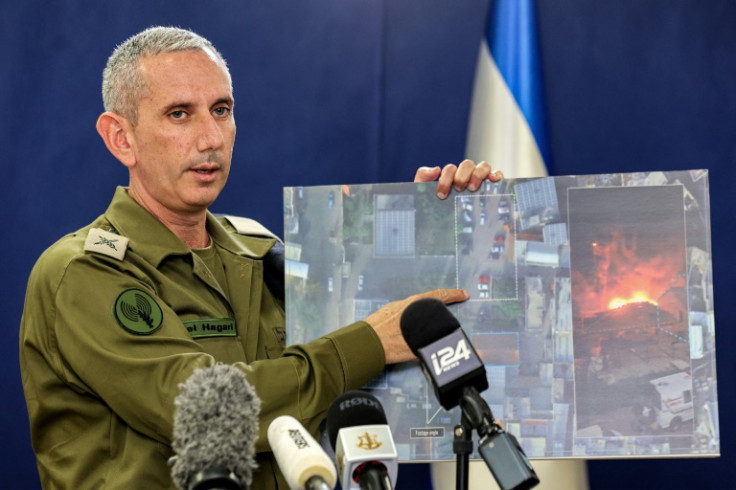
Israeli military spokesperson Rear Adm Daniel Hagari announced Israel's robust readiness to defend itself following a direct hit on the Nevatim airbase by ballistic missiles. Despite sustaining minor damage, the base remains fully operational. Tragically, a young girl was injured during the attack and is now in intensive care.
Hagari confirmed that all drones and cruise missiles launched by Iran were intercepted before entering Israeli airspace. The majority of the 120 ballistic missiles aimed at Israel were neutralized, with only a few managing to strike the Nevatim airbase and surrounding areas.
In response to this escalatory action, Hagari emphasized Israel's preparedness to protect its territory. Plans for an appropriate defensive response are currently under consideration.
Israel's war cabinet, including Netanyahu, Defense Minister Yoav Gallant, and Benny Gantz, will convene at 3:30 pm (1230 GMT) to discuss a response to Iran's overnight drone and missile attack. Netanyahu's ministers delegated this decision in the middle of the night, Sky News reported.
According to Reuters, Israeli and U.S. jets successfully intercepted most of the Iranian drones flying over Syria during the attacks. These interceptions thwarted numerous missiles and drones launched by Iran from various locations in Syria.
Despite Iran's aggressive tactics, their defenses proved ineffective against Israeli and US aircraft. British Royal Air Force Typhoons also reportedly participated in intercepting Iranian drones over Syria and Iraq.
According to reports from Israeli officials cited by The New York Times, Iran's assault involved a staggering arsenal, including 185 drones, 36 cruise missiles, and 110 surface-to-surface missiles.
This escalation follows a suspected Israeli airstrike on Iran's embassy compound in Damascus on April 1, which resulted in casualties among officers of the Islamic Revolutionary Guards Corp. Israel has not officially claimed responsibility for the attack.







